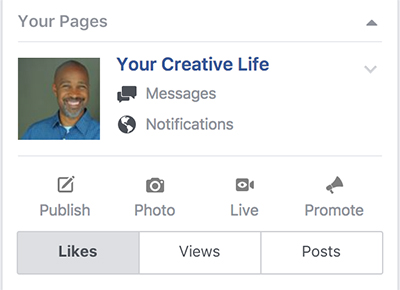Someone told me this week that they’re cutting back on Facebook. I get it. It can be a time-suck. It’s tempting to spend time liking and posting and commenting. Your creative work (and other work) can be ignored in the wake of all that activity. There are good things about Facebook: community building for example. Being in touch with people through social media can be a valuable way of breaking the isolation many writers face. But how much is too much?
Each of us needs to decide how to manage our time and show up at the page. Yes, there are a ton of distractions out there, but ultimately, the blame lands squarely on the writer to move past whatever’s in the way and to move toward the work.
I’ve observed two things that frequently get in the way for writers that I know: Curating and Conversing.
Curating is what we often do on social media. We pick photos, articles, memes, quotes and we post, post, post! We catalogue our lives, our concerns and our joys. No question, it’s addictive. There may be nothing inherently wrong with doing this, but it can take an enormous amount of time out of a day to focus on curating. Ask yourself why you’re putting so many things on social media. Does it feel like fun or obligation? Is your time better spent elsewhere? How does it make you feel? Are you posting to be seen? Are you posting to be liked? Are you posting to prove how smart you are? Be honest with yourself. Once you’re clear about why you’re posting, consider using a timer, or setting other kinds of boundaries around your Facebook or social media use. Find one of those programs that helps block the internet (or particular sites) and carve out some media-free time so you can do your work. Limiting your social media time might make it more enjoyable when you choose to lean into it.
You know what conversing is: chatting with your friends. You could be talking to anyone, really, but here I’m referring to those non-work conversations. (Not the necessary talks with the people in your household, but the other talks.) For your writing, it may be valuable to do research by interviewing experts or people who have experiences key to what you’re working on. And, of course, you need to talk to your agent, your manager or the folks on your “team”. Only you can tell if you’re spending too much time talking about things that are un-related to your artistic life. (My mother calls it “talking slipcovers”). How much time are you frittering away in dialogue about the weather, sports or politics? How often, when you’re supposed to be writing, do you simply pick up the phone when someone calls? Or do you make calls to avoid the work? Try setting some boundaries with friends, turning the phone off or working at the library. I love talking with my peeps, but there’s a helpful time to do it and a time that isn’t so helpful.
In order to find ourselves in the space of creating – it’s key to set the right atmosphere. We can carve out time on a calendar, set a timer, or find a distraction-free work space. Use an accountability partner and set some goals about how and how much you’re willing to show up for your work. Writing is unique, in that if you don’t set time for it, it won’t happen. And, unless you’re being paid for it, no one’s going to be knocking on your door (or calling you up) and asking for pages.
As you move through the July 4th holiday and into next week, make a plan about how you intend to focus on your writing work: how much, how often and under what circumstances. You can develop an ideal space and carve out the ideal time to show up in a way that works for you and nurtures your writing. This is not about being ‘perfect’ – a healthy dose of forgiveness is a good idea if you fall short. The point is, set yourself up for a win.
When you’re planning the time for being creative you are – in fact – being creative. Use those powerful skills to move past curating, conversation, and anything else that keeps you from your work and focus on the writing that only you can do.
As ever, let me know how it goes.



